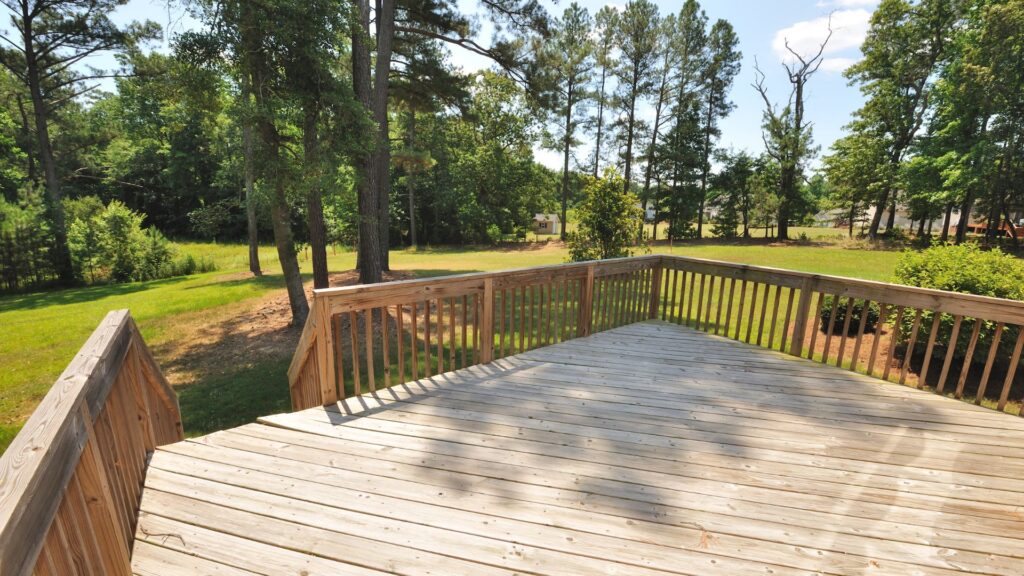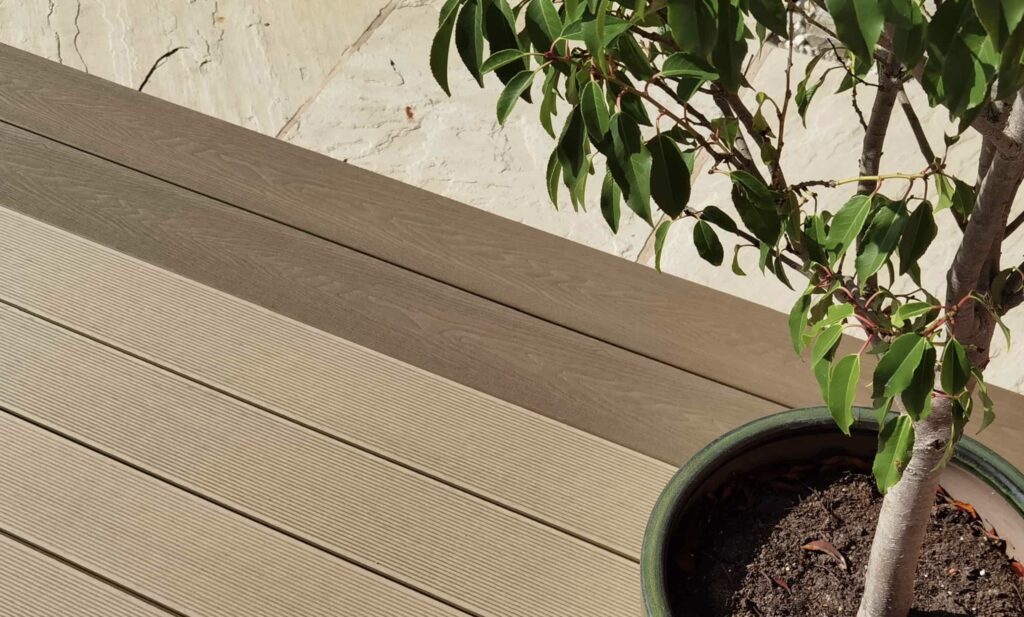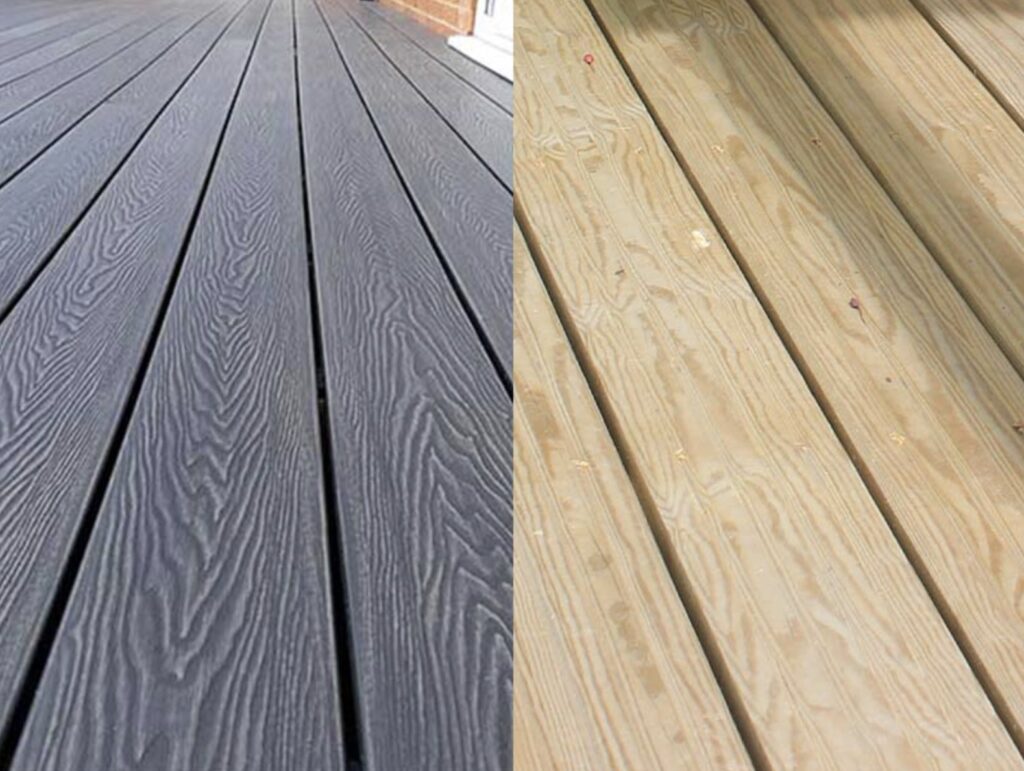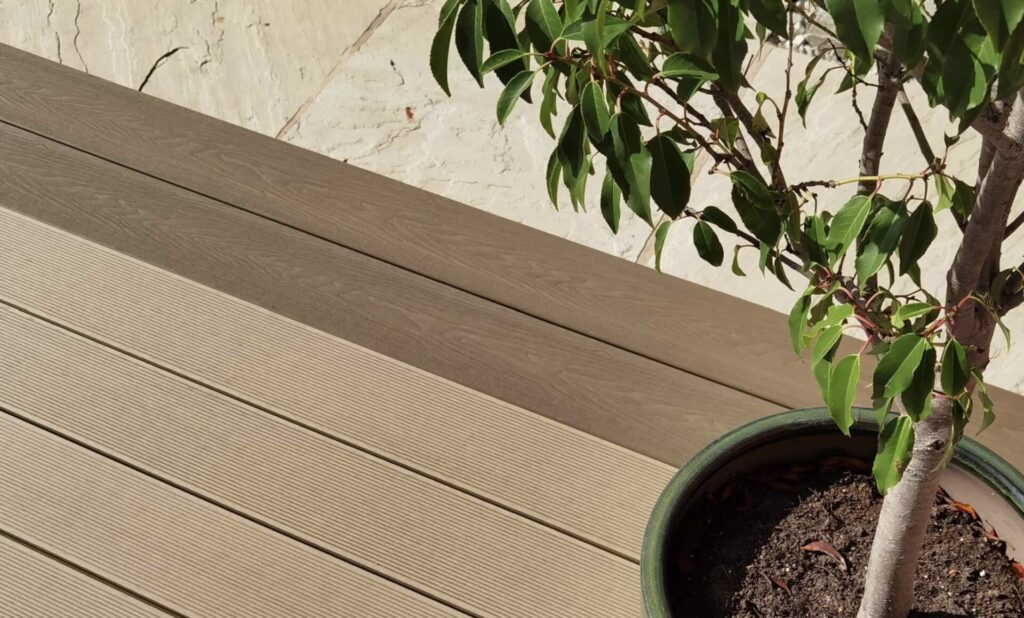Welcome to your ultimate guide on understanding how much it costs to build a deck in New Zealand! Whether you’re dreaming of creating a relaxing outdoor retreat or increasing the value of your home, building a deck can be one of the most rewarding home improvement projects. But before you dive into designing your perfect outdoor space, it’s important to get a clear picture of the costs involved. In this post, we’ll walk you through the various factors that impact deck prices, from materials and labour to permits and ongoing maintenance. By the end, you’ll have a solid understanding of what to budget for, whether you’re planning a small, simple deck or a large, luxurious outdoor area.
On average, the cost to build a deck in New Zealand ranges from $300 to $600 per square metre, depending on the materials used, deck size, and complexity of the design. Timber decks tend to be more affordable, while composite materials can increase the overall price. Additional costs, such as labour, council permits, and site preparation, should also be factored into the total budget.
Table of Contents
Factors That Affect Deck Costs In New Zealand
Building a deck in New Zealand can come with a range of costs, and understanding what influences these prices is essential to budgeting effectively. The total expense varies based on several factors, including the region where you live, the materials you choose, the size of the deck, and whether you hire a professional or attempt a DIY approach. Each of these aspects plays a significant role in determining the final cost of your deck.
Location-Specific Considerations
Decking costs can differ considerably depending on your location within New Zealand. In regions like Auckland, where the cost of living and building materials are generally higher, you can expect to pay more compared to areas such as Christchurch or smaller towns. This price variation is largely due to transportation fees, the availability of local resources, and labour demand. For example, Auckland’s growing population means higher demand for builders, which can drive up labour costs.
In contrast, in Christchurch, where materials may be more readily available or less expensive to transport, the overall cost of building a deck could be lower. Additionally, local regulations or restrictions may also affect pricing, as more complex building requirements in some regions might require additional permits or specialized labour.
Materials
The materials you choose for your deck will have a direct impact on the overall cost. In New Zealand, the three most popular decking materials are timber, composite, and PVC. Each material has its own price range and benefits, which can suit different budgets and aesthetic preferences.
- Timber: Traditional timber decking, such as pine or hardwood, is popular in New Zealand. Pine, being more affordable, can cost around $100-$150 per square metre, while premium hardwoods like kwila or garapa can range from $150-$250 per square metre.
- Composite: Composite decking is made from a mix of wood fibres and plastic. It is durable and low-maintenance, but it comes at a higher price, typically around $200-$350 per square metre. However, its long-lasting nature and minimal maintenance make it a good investment over time.
- PVC: PVC decking, which is made entirely from plastic, is the most expensive option, ranging from $250 to $400 per square metre. It offers excellent resistance to the elements, making it ideal for coastal areas, but the initial cost can be prohibitive for some.
Deck Size
The size of your deck is another major factor that affects the cost. Larger decks require more materials, which directly increases the cost. For example, a deck that is 20 square metres will be significantly cheaper to build than one that is 50 square metres, both in terms of materials and labour.
Additionally, larger decks may need extra structural support, such as more posts or beams, which can add to the complexity and cost of the project. Labour expenses will also rise because larger decks take more time to complete. This is why understanding your needs and the space available is crucial before beginning construction.
Labor Costs
The cost of labour in New Zealand can vary depending on the complexity of the deck design and the experience of the builder. On average, you can expect to pay between $50 to $100 per hour for a professional builder. If your deck includes complex features such as multiple levels, built-in seating, or custom railings, labour costs will be higher due to the increased time and skill required.
Additionally, different regions have different labour rates, with Auckland builders typically charging more due to the higher demand for their services. More rural areas may offer lower labour costs, but availability of skilled tradespeople might be limited, leading to potential delays.
DIY vs. Hiring a Professional
When it comes to building a deck, you might wonder whether to take on the project yourself or hire a professional. DIY can save money on labour costs, as you’re essentially doing the work for free. However, you’ll still need to factor in the cost of tools, materials, and the potential risk of errors that could lead to costly repairs down the line.
Hiring a professional, on the other hand, ensures that the job is done correctly and to a high standard. For larger or more complex decks, it often makes sense to hire a builder, as they will have the expertise to complete the job efficiently. While hiring a professional may add to the upfront cost, it can save you time and give you peace of mind knowing the job has been done right.
In conclusion, understanding the various factors that influence deck costs in New Zealand, from materials and size to location and labour, will help you better plan and budget for your project. Whether you opt for a DIY approach or enlist the help of a professional, each decision you make will impact the overall cost.
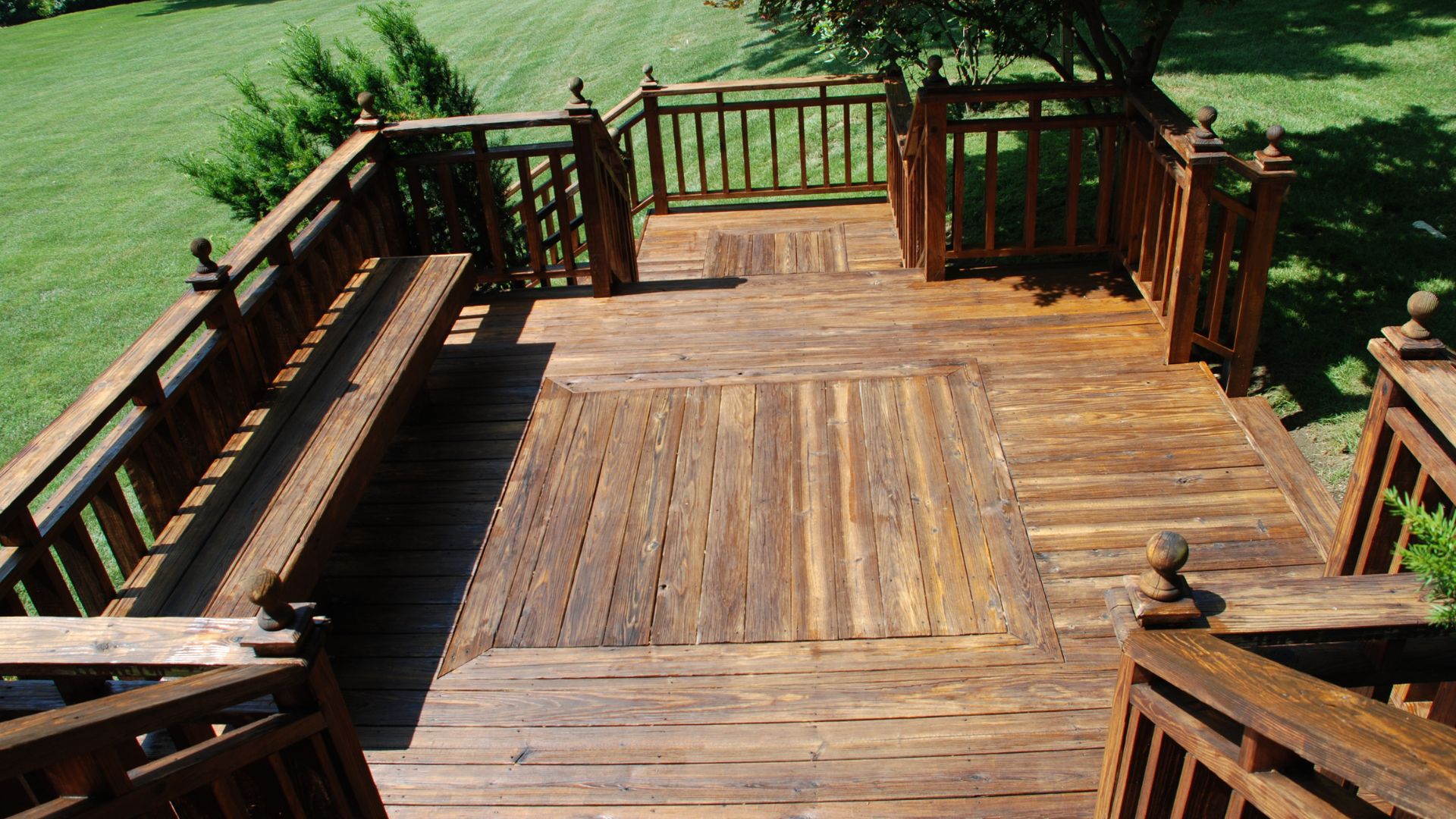
Breaking Down The Average Cost Of Building A Deck In NZ
Building a deck in New Zealand is a popular way to enhance outdoor living spaces, but the cost can vary significantly based on size, materials, and design. Understanding the average cost for different deck sizes helps you budget effectively. Let’s explore what to expect in terms of expenses for small, medium, and large decks.
Small Decks (10-15 sqm)
For smaller decks in the range of 10 to 15 square meters, the cost will typically reflect the simplicity of the design and the materials used. Basic timber decking options like pine or even entry-level composite materials are often chosen for these smaller spaces. On average, a basic small deck may cost between NZD 3,000 to NZD 6,000, including materials and labor.
- Timber materials: Pine is the most common and affordable wood used, but if you opt for something more durable like hardwood, the price will increase.
- Composite materials: While pricier upfront, composite decking materials tend to be lower maintenance over time, costing between NZD 200 to NZD 300 per square meter.
- Labor: Labour costs in New Zealand can range from NZD 50 to NZD 100 per hour, depending on location and the complexity of the job.
- Permits: For small decks, you may not need a building permit unless you’re planning structural elements like built-in seating or roofing.
Medium Decks (20-30 sqm)
For medium-sized decks, the costs naturally rise due to the increased area and potential for more elaborate features. A deck in this size range can cost anywhere from NZD 8,000 to NZD 15,000, depending on the materials and any custom design elements.
- Multi-level designs: If you’re adding multiple levels or built-in features like seating or planters, expect these to increase the price. Customization tends to add between NZD 2,000 to NZD 5,000 on top of basic costs.
- Timber vs. composite: Just as with small decks, timber is more affordable upfront but requires maintenance. Hardwood like Kwila or Vitex can increase the price per square meter to NZD 350 to NZD 450.
- Labor costs: Due to the added complexity, labor for medium-sized decks might lean toward the higher end of the hourly rates, sometimes reaching NZD 100 per hour.
- Permits and inspections: You may need to factor in the cost of a building consent, which can be between NZD 500 to NZD 1,500, depending on your local council.
Large Decks (30+ sqm)
If you’re planning an expansive outdoor deck over 30 square meters, the costs will escalate not only due to the size but also because luxury materials and high-end designs often come into play. A large deck can range from NZD 20,000 to NZD 50,000 or more, depending on the design complexity and choice of materials.
- Premium materials: For large, upscale decks, materials like tropical hardwoods or premium composite decking are popular choices. These materials are more durable but can cost upwards of NZD 500 per square meter.
- Custom design elements: Features such as integrated lighting, outdoor kitchens, and custom railings or roofing can add considerable cost. High-end designs may add between NZD 10,000 to NZD 20,000 to your overall budget.
- Landscaping: If you’re building in a sloped area or incorporating landscaping around the deck, that may also require excavation or retaining walls, adding to the labor and material costs.
Example Budget Breakdown
For a medium-sized deck project (25 sqm), here’s an example of an itemized budget:
Materials
- Basic treated pine timber: NZD 125 per sqm = NZD 3,125
- Posts, beams, and fasteners: NZD 1,000
Labor
- Estimated 100 hours at NZD 80 per hour = NZD 8,000
- Building Consent: NZD 1,000
- Permits and Inspections: NZD 500
- Miscellaneous costs (waste disposal, site prep, etc.): NZD 500
Total estimated cost: NZD 14,125
This breakdown provides a realistic picture of what you might expect when planning a deck, with some flexibility depending on your chosen features.

Additional Costs To Consider
When budgeting for a deck, it’s easy to focus solely on the core materials and construction. However, there are several additional costs that are essential to factor into your overall budget. These extras can influence both the upfront cost and the long-term expense of maintaining a deck in New Zealand. Below, we’ll explore the key considerations that might impact your final costs.
Building Permits and Council Fees
In New Zealand, many deck projects will require building consent or council approval, particularly if your deck is elevated more than 1.5 meters above ground level or attached to the house. The cost for a building permit varies depending on your location and the complexity of the project, but you can expect to pay anywhere from $500 to $1,000 or more. These fees cover the council’s review of your plans, ensuring that your deck complies with local building codes and safety regulations. It’s important to account for this cost early on, as skipping the permit process can lead to fines or being required to dismantle your deck later. Always check with your local council to understand the exact requirements for your area before starting any construction.
Decking Accessories
Adding flair and functionality to your deck often involves investing in accessories, which can quickly add to your costs. Features like built-in lighting, railings, pergolas, and seating are popular choices to enhance the usability and aesthetic of your deck. Built-in lighting can cost between $50 and $200 per fixture, depending on the type and installation complexity. Railings, particularly if made from glass or stainless steel, can add $150 to $400 per meter. Pergolas, which offer shade and design appeal, typically start at $2,000 but can rise substantially based on the material and design. If you want custom seating built into the deck structure, expect to pay around $500 to $1,500 depending on the size and materials. These additions not only elevate the look but also increase your enjoyment of the space, so it’s worth weighing up their long-term value.
Landscaping and Site Preparation
If the area where you plan to build your deck is uneven or needs clearing, the costs for site preparation can be significant. For example, if your site requires grading to create a level surface, expect to pay around $1,000 to $3,000, depending on the complexity of the terrain. If retaining walls are required to support the deck, this can add another $2,000 to $5,000 or more to your project. Furthermore, if there are any existing structures, trees, or roots that need to be removed, demolition and removal fees could range from $500 to $2,500. Proper site preparation is crucial for ensuring the longevity of your deck, as a stable foundation prevents future issues like sinking or warping. Make sure to factor in these potential costs when planning your budget.
Ongoing Maintenance
Timber decks, in particular, require ongoing maintenance to protect them from the elements and keep them looking their best. Sealing or staining the deck is an important part of maintaining its durability, especially in New Zealand’s varied climate, where timber is exposed to rain, sun, and temperature fluctuations. Typically, sealing or staining needs to be done every two to three years, depending on the wood type and environmental exposure. This can cost between $500 and $1,500 each time, depending on the size of your deck. Failing to maintain your deck can result in costly repairs down the line, as untreated wood can crack, warp, or develop mold. For those opting for low-maintenance materials like composite decking, these costs are much lower, but it’s still essential to keep your deck clean and free of debris.
By accounting for these additional costs early in your planning process, you’ll avoid any unwelcome surprises and ensure that your new deck is both functional and financially feasible in the long run.
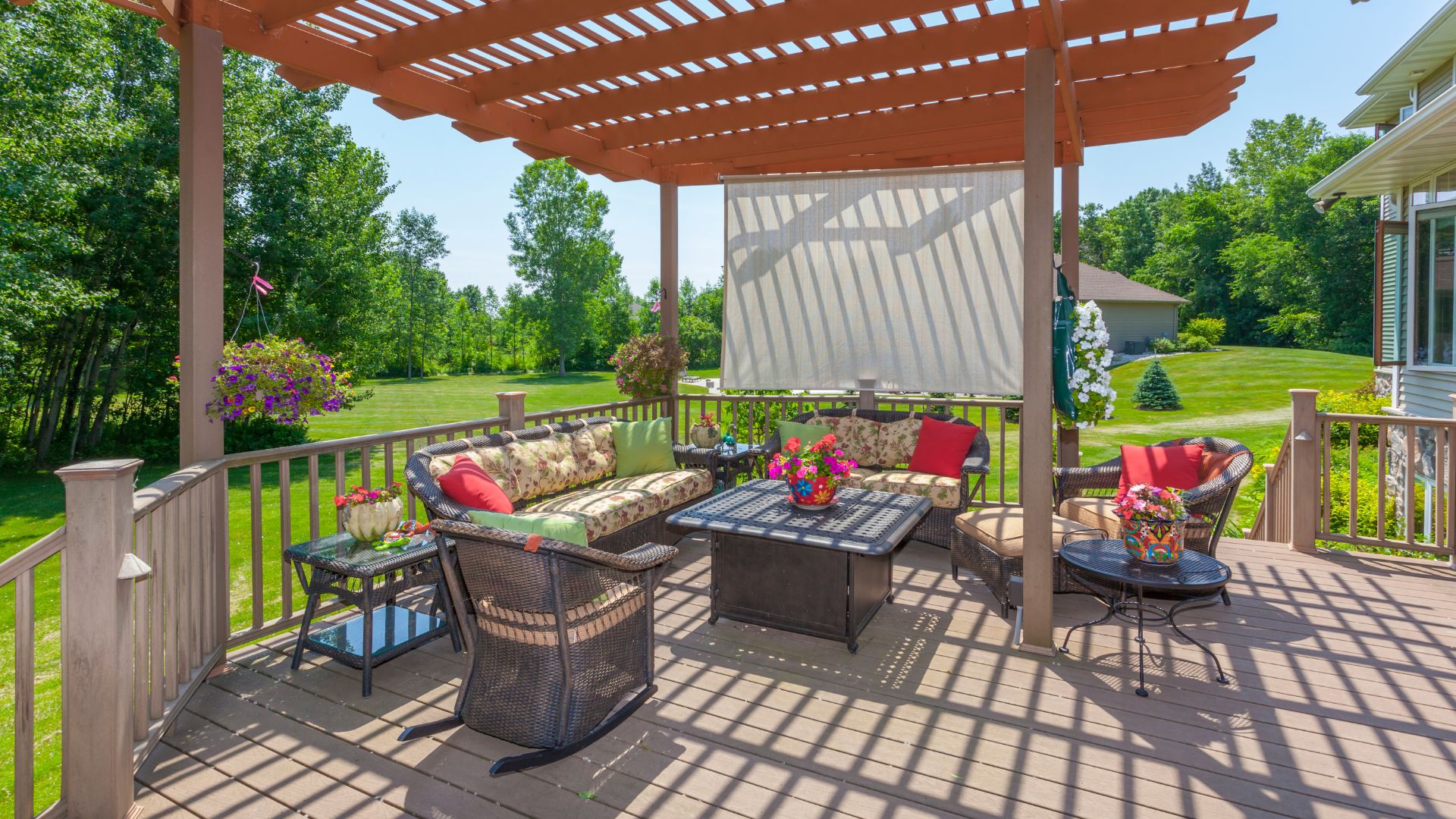
Ways To Save Money On Deck Building In NZ
Building a deck in New Zealand can quickly add value to your property and enhance your outdoor living space. However, the costs can mount if you’re not strategic about your approach. Here are some key ways to save money on your deck project without compromising quality or design.
Smart Material Choices
One of the most significant areas where homeowners can save money when building a deck is by carefully selecting their materials. Timber is the most popular choice for decks in New Zealand, but prices can vary widely between different types of wood. Opting for pressure-treated pine or sustainably sourced softwoods like macrocarpa can be both cost-effective and durable, as they resist rot and insect damage without the higher price tag of hardwoods like kwila or cedar. Composite decking is another option, offering low maintenance and long-lasting benefits. While it may have a higher upfront cost, it can save you in the long term with reduced maintenance needs.
When choosing materials, also consider alternatives for railings, balusters, and deck accessories. Using powder-coated steel or aluminum for these elements can be more budget-friendly and require less upkeep than traditional wood, helping you to manage costs over the life of the deck.
Opt for a Simple Design
The complexity of your deck design has a direct impact on both material and labour costs. Intricate designs with multiple levels, custom features, or curved edges tend to require more time, specialized skills, and expensive materials. To save money, stick to a more straightforward, rectangular deck plan. Simplicity in design doesn’t mean you need to sacrifice beauty. By focusing on quality construction and thoughtful design details, like well-placed lighting or planters, a simple deck can be just as striking as a complex one.
Additionally, avoiding extras like built-in seating or planters can also reduce costs. These features can always be added later as standalone elements, allowing you to gradually enhance your deck’s functionality and aesthetic without increasing the initial expense.
DIY Deck Building Tips
For those who are handy and want to save on labour costs, taking on parts of the deck-building process yourself can make a significant difference. Start by handling the demolition of any existing structures or leveling the ground where the deck will be built. These are straightforward tasks that can be done with basic tools and a bit of time.
If you’re comfortable with more advanced DIY, you could take on tasks like laying the decking boards or assembling the framework. However, it’s essential to understand your limits. While DIY can save you money, doing something incorrectly can lead to costly repairs down the line. Always prioritize safety, especially when it comes to structural elements, and ensure you’re meeting local building codes. For more complex tasks like installing the foundations or dealing with plumbing or electrical elements, it’s best to bring in a professional.
Shop Around for Quotes
Labour is often one of the most significant expenses when building a deck, and prices can vary depending on the contractor. To ensure you’re getting the best value for money, don’t settle for the first quote you receive. Reach out to multiple local builders and compare their prices, as well as their experience, reputation, and the quality of their previous work.
While it might be tempting to go with the lowest quote, keep in mind that price isn’t everything. A well-regarded contractor who charges a little more might save you money in the long run by delivering better workmanship that lasts longer. You can also negotiate with contractors to see if there are any areas where costs can be trimmed without compromising the quality of the work.
By taking a thoughtful approach to materials, design, DIY efforts, and shopping around for the best deal, you can create a beautiful deck that fits both your lifestyle and your budget in New Zealand.

Is It Worth Investing In A High-End Deck?
When considering a deck addition to your home in New Zealand, many homeowners ponder whether it’s worth investing in a high-end deck. While the initial cost may seem steep, understanding the long-term benefits in terms of value, durability, and appeal is crucial. Let’s explore how a high-end deck can provide a return on investment (ROI), contribute to durability and longevity, and boost your home’s resale value.
Return on Investment (ROI)
Investing in a high-quality deck can significantly enhance the value of your property. In New Zealand, outdoor living spaces are highly desirable, with many buyers prioritizing homes that offer an area to enjoy the country’s beautiful natural surroundings. A well-built deck can add substantial financial value to your home, increasing its marketability. The return on investment for decks often ranks high among home improvements, with reports suggesting homeowners can recoup up to 70-80% of the deck’s cost when selling their property. Opting for high-end materials such as hardwoods, composite decking, or pressure-treated timber may require a larger upfront investment, but they can elevate the overall aesthetic and functionality, making your home more attractive to prospective buyers.
Durability and Longevity
One of the main advantages of choosing a high-end deck is the long-term durability and reduced maintenance costs. Cheaper materials, like untreated wood, may initially seem budget-friendly, but they are often more prone to wear and tear. Over time, exposure to New Zealand’s sometimes harsh weather conditions—heavy rains, intense sunlight, and salt in coastal areas—can lead to warping, fading, and decay. This means more frequent repairs, refinishing, and replacements.
On the other hand, high-end materials like composite decking, tropical hardwoods, or treated timber are designed to withstand the elements much better. These materials offer increased resistance to rot, moisture, and pests, leading to fewer maintenance requirements and a longer lifespan. While the upfront costs may be higher, you’ll save on ongoing maintenance and repairs, making high-end decks a smarter financial decision in the long run.
Resale Value
In the competitive New Zealand property market, homes with outdoor spaces that seamlessly blend style and function are particularly sought after. A well-constructed, high-end deck not only enhances the living space but also adds a level of sophistication to the property. This boost in curb appeal can significantly increase the resale value of your home. Potential buyers are more likely to be drawn to a property with a deck that’s built to last, both structurally and aesthetically.
Moreover, a high-end deck can help your property stand out in a crowded market, potentially leading to quicker sales. Buyers will appreciate the low maintenance and long-lasting materials, knowing they won’t have to worry about deck upkeep for years. This added appeal can justify a higher asking price, which can more than compensate for the initial investment.
Investing in a high-end deck is certainly worth considering if you’re looking to enhance your home’s outdoor living space. With a strong ROI, increased durability, and a boost in resale value, high-quality decking materials can offer long-term benefits that outweigh the initial costs. By choosing durable materials and focusing on craftsmanship, you ensure that your deck remains an attractive feature for years to come, while also increasing the overall value of your home in New Zealand’s competitive property market.
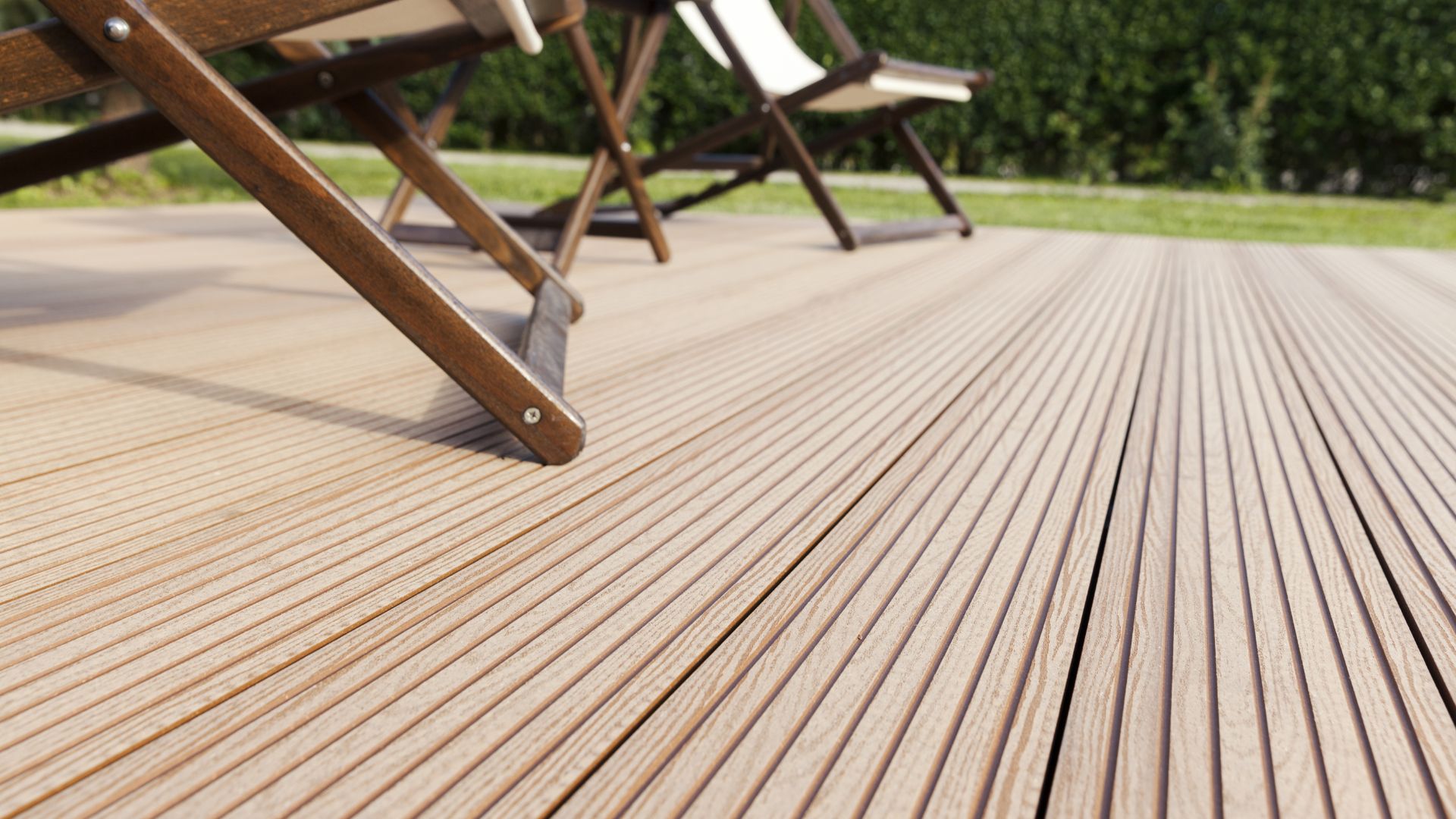
FAQs: About How Much Does A Deck Cost NZ
Do I need a permit to build a deck in New Zealand?
Yes, in most cases, you will need a permit to build a deck, especially if it is elevated above the ground. The New Zealand Building Code requires permits for decks over 1.5 meters in height. However, if the deck is lower than 1.5 meters, you may not need one, but it’s always best to check with your local council for specific regulations.
How much does it cost to build a deck in New Zealand?
The cost of building a deck in NZ depends on several factors, including the size, materials used, and labour. On average, a basic timber deck can cost between $3,000 and $7,000 for smaller sizes (10-15 sqm), while larger or more elaborate decks may range from $10,000 to $20,000 or more. Material choice, site conditions, and additional features can also influence the price.
What is the most affordable decking material in NZ?
Treated pine is often the most affordable decking material available in New Zealand. It’s widely used due to its durability and cost-effectiveness. However, for a more long-lasting solution, composite materials may be worth considering, though they come with a higher initial cost.
How long does it take to build a deck in New Zealand?
The time required to build a deck can vary depending on the complexity of the design, the size of the deck, and whether any site preparation is needed. A simple deck can be completed in 1-2 weeks, while larger or more complex projects may take several weeks to finish, especially if additional features like stairs or pergolas are included.
Is it cheaper to build a deck yourself or hire a professional?
Building a deck yourself can save on labour costs, but it requires a significant amount of skill and time. For those with DIY experience, this can be a good way to reduce costs. However, for larger or more complex decks, hiring a professional is recommended to ensure structural integrity, meet building codes, and achieve a high-quality finish. The cost of hiring a professional typically adds around $50 to $100 per hour in labour fees.
What is the best decking material for coastal areas in NZ?
For coastal areas, materials that can withstand salt air and moisture are essential. Composite decking and hardwoods like Kwila are ideal for these environments due to their resistance to weathering, warping, and decay. These materials tend to last longer and require less maintenance compared to softwoods.
How can I save money when building a deck in NZ?
To save money, consider using affordable materials like treated pine or opting for a simpler design. DIYing parts of the project, such as site preparation or staining the deck yourself, can also help reduce costs. Additionally, obtaining multiple quotes from builders will allow you to compare prices and find the best deal.
How often do I need to maintain my deck, and what are the costs involved?
Timber decks require regular maintenance, including cleaning, sealing, or staining, typically every 1-2 years to prevent weather damage. Composite and PVC decks require less maintenance. The cost for maintaining a timber deck can range from $200 to $500 for staining and cleaning, depending on the size of the deck and the products used.
Can building a deck increase the value of my home in NZ?
Yes, building a deck can increase the resale value of your home by providing additional outdoor living space and improving the overall appeal of your property. A well-built deck, especially in larger homes or those with scenic views, can offer a strong return on investment (ROI) when selling your home.
What extras should I consider when budgeting for a deck?
In addition to materials and labour, you should budget for extras like railings, built-in lighting, and possibly a pergola. Site preparation, especially for uneven ground, can also add to the cost. Other potential expenses include council permits, drainage solutions, and ongoing maintenance such as sealing or staining the deck.
Conclusion
When planning your deck budget in New Zealand, it’s essential to weigh factors such as the size of the deck, material choices, labor costs, and any additional features you may want to include. Whether you opt for premium hardwood or budget-friendly pine, or if you’re considering a more intricate design, each decision can significantly impact the final cost. It’s always a good idea to get multiple quotes from local builders to compare prices, or if you’re more hands-on, exploring DIY options could be a cost-saving route, depending on your skill level. If you’ve already embarked on your deck-building journey, we’d love to hear about your experiences—feel free to share them in the comments, or reach out for personalized advice tailored to your needs.
About the Author:
Mike Veail is a recognized digital marketing expert with over 6 years of experience in helping tradespeople and small businesses thrive online. A former quantity surveyor, Mike combines deep industry knowledge with hands-on expertise in SEO and Google Ads. His marketing strategies are tailored to the specific needs of the trades sector, helping businesses increase visibility and generate more leads through proven, ethical methods.
Mike has successfully partnered with numerous companies, establishing a track record of delivering measurable results. His work has been featured across various platforms that showcase his expertise in lead generation and online marketing for the trades sector.
Learn more about Mike's experience and services at https://theleadguy.online or follow him on social media:

